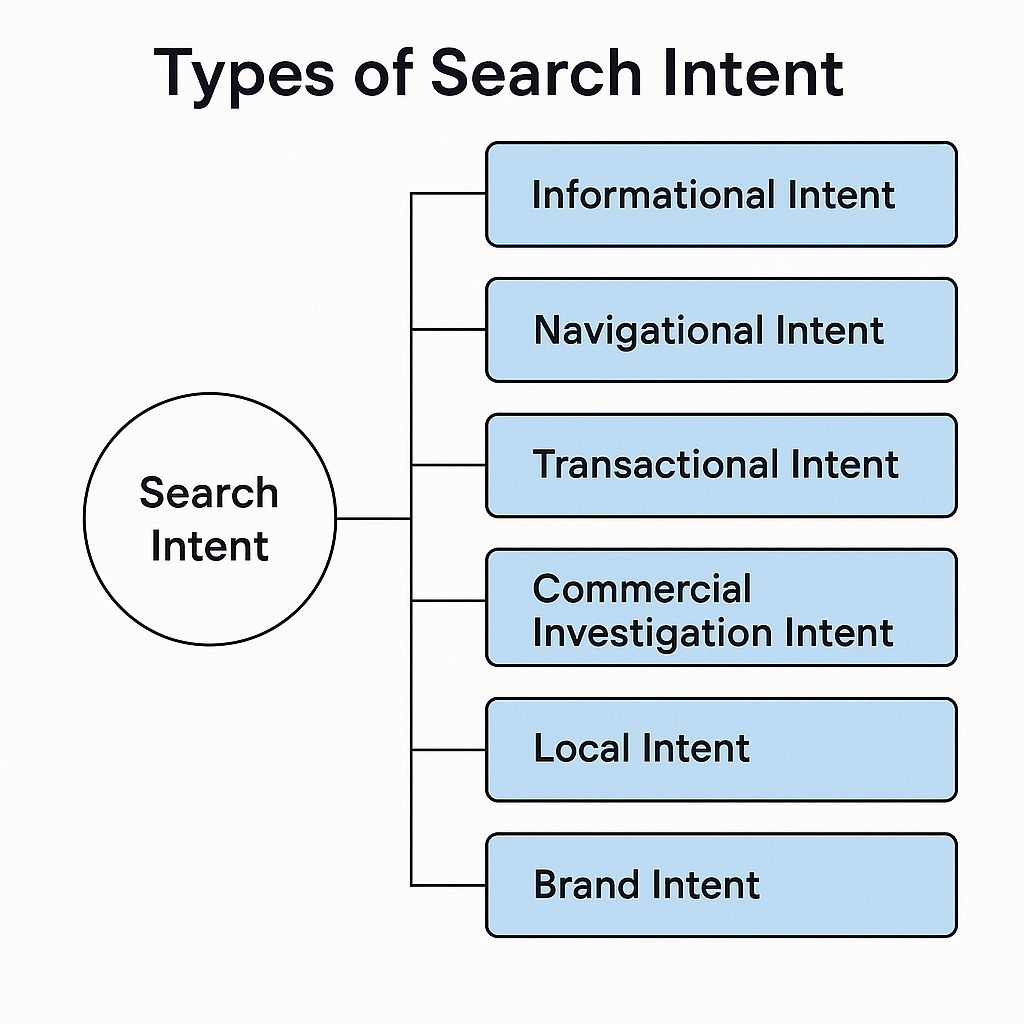
When it comes to SEO, understanding search intent is everything. Most marketers are familiar with the four traditional types—informational, navigational, transactional, and commercial—but limiting your strategy to just these can mean missed opportunities. In reality, search intent is more complex and nuanced than this basic model suggests.
At Aone Web Expert, we believe that diving deeper into the psychology of search behavior can help websites rank better, attract the right users, and convert more effectively. Let’s break down why there’s more than meets the eye—and explore additional types of search intent every SEO professional should consider in 2025 and beyond.
The Core 4 Types of Search Intent (A Quick Recap)
-
Informational: Users are looking for information (e.g., “how to boost SEO ranking”).
-
Navigational: Users want to reach a specific website (e.g., “Facebook login”).
-
Transactional: Users intend to make a purchase (e.g., “buy iPhone 15 online”).
-
Commercial Investigation: Users are comparing options before buying (e.g., “best SEO tools for small business”).
These categories are essential—but they don’t cover the full spectrum.
Beyond the Basics: Additional Types of Search Intent You Should Know
1. Local Intent
Local searches have skyrocketed, especially with mobile use. A query like “SEO agency near me” or “best pizza in San Francisco” doesn’t just want information—it wants location-based results.
Tip from Aone Web Expert: Optimize your Google Business Profile and use localized landing pages to capture this intent.
2. Brand Intent
Users with brand intent are looking for content specifically from or about a brand name—not necessarily to visit the homepage. For example, “Aone Web Expert blog” or “Nike reviews.”
This is important for brand-building SEO and reputation management.
3. Problem-Solving Intent
This goes deeper than basic information. These users have a specific problem they want to solve. Think:
-
“Why is my website not showing on Google?”
-
“How to remove duplicate content penalties”
They’re looking for expert advice, which creates the perfect opportunity for in-depth, trust-building content.
4. Comparison Intent
While commercial investigation includes some comparison, this category deserves its own spotlight. Queries like:
-
“Ahrefs vs SEMrush”
-
“Shopify or WooCommerce for SEO?”
These searches signal that users are on the verge of a decision and looking for help picking a winner.
5. Educational Intent
This intent targets users wanting to learn over time, not just grab a quick answer. Searches like “SEO course for beginners” or “learn HTML step by step” fall into this category.
Consider creating multi-part guides, tutorials, or downloadable resources.
6. Entertainment Intent
Not every search is about learning or buying. Entertainment intent includes:
-
“Funny SEO memes”
-
“Best marketing podcasts 2025”
-
“Latest Google SEO update jokes”
Including this in your content strategy can help improve user engagement and brand loyalty.
Why Understanding Intent Variety Matters for SEO
Google is constantly refining how it serves results. With tools like BERT and MUM, it’s better than ever at identifying nuanced intent. If your content aligns closely with what the user actually wants, you’ll:
Get higher CTRs
Decrease bounce rates
Increase time on page
Improve rankings over time
How Aone Web Expert Helps You Align with Real Search Intent
At Aone Web Expert, we go beyond surface-level SEO. We take time to understand your audience, map out intent types across your sales funnel, and build content strategies that resonate with how people actually search.
Whether you’re targeting a local audience, building your brand, or trying to educate, our team will help you:
-
Research real user behavior
-
Create content that matches search motivation
-
Optimize every page for both intent and SEO value
Search intent is no longer a 4-box checklist. It’s a dynamic spectrum—and recognizing that can make all the difference. The more precisely you address user needs, the more search engines will reward your content.
Want to create a search-intent-driven SEO strategy? Contact Aone Web Expert today and let’s get your content in front of the right audience.
Sharing is Caring!